Fritextsökning
Artiklar per år
Innehållstyper
-

In search of Marcel Proust's lost health
A great writer, but also a weak person and a hypochondriac. That has been the usual image of Marcel Proust. But the pediatrician and literary scholar Carl Lindgren paints a partly different picture in a new book about the French master's life, health and attitude towards physicians.
-

Investigations against AstraZeneca: ”Chinese interests may be behind them”
Why are there several investigations against AstraZeneca employees in China right now? Life Science Sweden continues to seek answers.
-

IGN slår ner mot film från Leo Pharma
En film från Leo Pharma, där en läkare beskriver ett läkemedel som ”really over the top” och att det leder till ”really incredible results”, fälls av IGN.
-
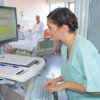
Varningar om Millennium ignorerades
”Som att hälla flytande cement i organisationen.” Så beskriver IT-professorn Johan Magnusson det hårt kritiserade journalsystemet Millennium. Efter flera turer har nu regionen backat, men varningarna var många långt innan införandet.
-
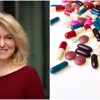
Drug development booms in Medicon Valley
When it comes to developing new medicines, the Öresund region is one of the top performers in the EU. Companies working on commission for pharmaceutical companies are highlighted as a success factor. “Everyone has heard of Novo Nordisk, but these companies are unknown to people outside the industry despite being the golden vein of the life science sector,” says Anette Steenberg, CEO of the cluster organisation MVA.
-

Nya life science-strategin – ”Ska befästa Sverige som ledande”
Kliniska prövningar och precisionshälsa lyfts fram som viktiga områden i den nya nationella life science-strategin. (LÄNGRE UPPDATERAD VERSION)
-

Ansökan klar för enklare doseringsform av lecanemab
En ansökan om marknadsgodkännande i USA har nu slutförts för det svenskutvecklade Alzheimerläkemedlet lecanemab som veckovis subkutan underhållsbehandling.
-

Japansk läkemedelsjätte flyttar till Forskaren
Ännu ett stort läkemedelsbolag flyttar in i Forskaren i Hagastaden.
-

Donanemab godkänns i Storbritannien – men anses för dyrt för skattebetalarna
Eli Lillys alzheimerläkemedel donanemab godkänns i Storbritannien – men lär ändå inte bli tillgängligt för vanliga patienter. Orsaken är att behandlingen bedöms vara för dyr i förhållande till nyttan den kan göra.
-

”The importance of stratification in a statistician’s August kitchen”
Ingrid Lönnstedt writes about an experiment of her own at home and about what lessons can be learned from it, in a science column.
-
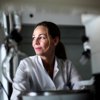
Her company is developing a new tablet form obesity drug
Obesity and diabetes are the primary targets of a new tablet treatment under development by Malmö-based Pila Pharma. The company’s ambition is to take on the billion-selling GLP1 analogues. ‘‘Basically, I expect all the beneficial effects that they have, but not the same side effect profile,’’ company founder Dorte X Gram said in an interview with Life Science Sweden.
-

GSK pays 2.2 billion dollars to settle Zantac lawsuits
British drugmaker Glaxo Smith Kline, GSK, has struck a 2.2 billion dollar settlement, thereby resolving a vast majority of the liability cases pending against the company in the U.S. that alleged its discontinued drug Zantac caused cancer.
-

Storbolag i gräl om hiv-läkemedel
En träta om påstått vilseförande marknadsföring av hiv-läkemedel mellan läkemedelsbolagen Gilead och Glaxo Smith Kline (GSK) har nu avgjorts – till den senares fördel.
-

Hon ska leda affärsutvecklingen på Diamyd i Umeå
Diamyd Medical, som utvecklar läkemedel mot typ 1-diabetes, har anställt Sofia Mayans som affärsutvecklingschef vid företagets produktionsanläggning i Umeå.
-

Anna Törner: ”Mom, do you think you’ll ever get married again?”
”I realize I’m slowly descending into that familiar statistical rabbit hole, where life’s biggest uncertainties are reduced to point estimates and confidence intervals”, Anna Törner writes in a column.
-

“We should avoid surgery if we can”
Since February this year, she has been Scientific Director Life Science at the Karolinska Institutet. Life Science Sweden met Anna Martling for a talk about role models, surgery and Sweden’s strengths and weaknesses in medical research.
-

Ingrid Lönnstedt: ”The confidence interval and its width”
Always keep an eye on the width of your and others’ confidence intervals, writes Ingrid Lönnstedt in a science column.
-

Oegentligheter i Brasilien kan kosta Getinge halv miljard
Getinge avsätter nästan en halv miljard kronor för att täcka förväntade kostnader kopplade till oegentligheter vid försäljning av medicinteknik till offentliga sjukhus i Brasilien.
-
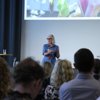
”Bilder är det perfekta målet för AI”
Allt fler lösningar baserade på artificiell intelligens utvecklas och används i vården. Radiologi är ett område som lämpar sig väl för tekniken. Det menar Sophia Zackrisson, professor i radiologi vid Lunds universitet.
-

Leo Pharmas nyförvärv floppade i studie
Danska Leo Pharmas läkemedelskandidat mot hudsjukdomen kongenial iktyos har misslyckats i en fas III-studie.
-

Anna Törner: Yes, I Am Sick, But Not Weak
”People often say that someone who is ill only has one wish—to get better. But I think that is not true. Someone who is ill also longs to be understood, to be respected, to not have their identity overshadowed by their condition”, writes Anna Törner in a column.
-

The investor: “The major common diseases are hot again”
She has previously been voted Investor of the Year and will now be moderating The Future of Swedish & Danish Life Science congress. We check the temperature of the industry with Nina Rawal from Trill Impact Advisory.
-

Thumbs down for lecanemab in the EU – “Very surprised”
The Azheimer's drug lecanemab has received a negative assessment from the European Medicines Agency’s Committee for Medicinal Products for Human Use (CHMP), according to an announcement made by the Agency last week. Bioarctic’s CEO Gunilla Osswald describes the reactions after the announcement as a surprise and disappointment.
-
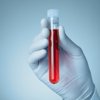
Healthcare study: Alzheimer’s blood test shows high accuracy
A blood test for identifying Alzheimer’s has now been tested in the general healthcare setting. According to the researchers, the test was 90% accurate in making a diagnosis.